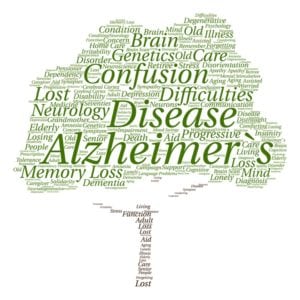Alzheimer's & Dementia Home Care
Let's Get Started!
Get Immediate Help on Info & Pricing
Understanding the Role of In-Home Care for Those with Memory Loss
Dementia is a growing challenge for many families caring for aging loved ones. As cognitive abilities decline, those with dementia require specialized support and care. Fortunately, with in-home care services tailored to memory loss, individuals can continue living comfortably and meaningfully. Home care allows them to remain in familiar surroundings while receiving the assistance they need.
What is Dementia Home Care?
Dementia home care refers to professional in-home care services for seniors experiencing dementia or memory loss. Specialized caregivers are trained in dementia care techniques that focus on:
- Maintaining cognitive skills and slowing decline
- Tailoring activities and tasks to current abilities
- Promoting safety in the home environment
- Supporting both physical and emotional needs
- Reducing anxiety and disruptive behaviors
- Keeping the individual meaningfully engaged each day
With dementia home care, daily activities are structured around the capabilities and interests of the senior. Caregivers collaborate closely with family members and healthcare providers to develop customized care plans. The goal is to sustain function, independence and quality of life for as long as possible.
Importance of Familiar Surroundings
Receiving memory loss care at home provides numerous benefits for the senior's well-being. Remaining in familiar surroundings maintains a sense of security and normalcy. Known spaces and beloved belongings have a calming influence. Established routines add stability to daily life. Seniors also benefit emotionally from ongoing connections with family and friends nearby.
Specialized Training in Dementia Care Techniques
Home care agencies select caregivers for dementia assignments based on their advanced skills and specialized training. These compassionate professionals complete courses in dementia caregiving to gain expertise in areas such as:
- Effective communication approaches
- Managing behavioral challenges
- Providing cues and reminders
- Adapting activities to abilities
- Ensuring safety
Caregivers continually update their knowledge as dementia care strategies evolve. Their specialized training enables them to expertly manage the unique care needs of those with memory loss.
Support Options for Families Living with Dementia
Caring for a loved one with dementia presents unique challenges. Home care helps families navigate the demands of memory loss through:
Respite Care - Planned breaks allow family caregivers to focus on self-care. This helps increase resilience and prevent burnout.
Family Counseling - Guidance sessions teach coping strategies for managing dementia behaviors and adapting to role changes.
Education & Training - Caregivers provide family members with resources on dementia and teach hands-on caregiving skills.
Medical Team Collaboration - Close coordination with doctors ensures the senior's care plan aligned with current needs and abilities.
Transition & Discharge Care - Temporary increased care helps seniors recover after hospitalization and transition home safely.
Emergency Assistance - Families have quick access to help 24/7 if an urgent need arises.
Key Questions for Home Care Agencies
When selecting an agency, addressing these important questions will help determine if they are the right fit:
- What screening measures do you use to hire dementia care professionals? Look for rigorous vetting and background checks.
- What specialized training is required for your dementia caregivers? Training should cover communication, behavioral interventions, promoting safety, and more.
- How are caregivers matched to clients with dementia? Seek a personalized approach accounting for needs, temperament and preferences.
- How will you handle my loved one's specific symptoms and behavioral challenges? Ensure the agency is equipped for the unique issues you face.
- How often will care plans be updated as my loved one's condition evolves? Care plans should be adjusted continuously to match changing needs.
- How will you keep family members involved and informed? Open communication and collaboration is key.
The right home care agency will demonstrate in-depth expertise in dementia care. They will craft customized plans to nurture your loved one's well-being while also supporting family members. With compassionate in-home assistance, those with memory loss can continue to live joyfully.

Common Forms of Dementia
There are various types of dementia that can affect older adults, each with their own symptoms and care needs:
Alzheimer's Disease
The most prevalent form, Alzheimer's disease accounts for 60-80% of dementia cases. It initially affects memory formation, progressing to impact language, reasoning, and coordination. Alzheimer's home care focuses on retaining functional abilities through routine, engaging activities and reassurance.
Vascular Dementia
Impaired blood flow causes damage to brain tissue, leading to issues with information processing, judgment and spatial abilities. Care involves safely assisting with activities and preventing injuries. Companionship and redirection help manage confusion.
Lewy Body Dementia
This progressive disorder impacts cognition, movement, sleep and behavior. Visual hallucinations are common. Caregivers work to minimize reactions to hallucinations and maintain nighttime safety. Soothing activities reduce agitation.
Frontotemporal Dementia
Personality and behavior changes like disinhibition are characteristic due to frontal lobe damage. Caregiving focuses on implementing routines and using behavioral reinforcement appropriately. Difficult behaviors are managed through distraction and redirection.

Benefits of In-Home Dementia Care
Dementia home care offers many advantages for seniors with memory loss and their loved ones:
Preserves Independence
The familiar home setting paired with modified assistance from caregivers enables seniors to retain independence. Care is tailored to match capabilities that may fluctuate day to day.
Provides Safety & Security
Caregivers safeguard the home environment by removing fall risks, enabling safer mobility, administering medications properly and monitoring overall wellness. Their oversight keeps the senior protected.
Manages Behaviors & Anxiety
Specialized training equips caregivers to effectively respond to challenging dementia behaviors that stem from fear and disorientation. Care focuses on creating a calm, reassuring environment.
Stimulates Cognitive Abilities
Engaging activities, conversations and tasks aim to exercise the senior's mind and preserve cognitive function. Caregivers adapt activities as abilities change.
Offers Socialization
Warm companionship and social interaction helps improve mood and overall well-being. Caregivers engage the senior in positive conversations and leisure activities.
Provides Family Respite
With professional caregivers assisting with daily care, family members gain a necessary reprieve from the demands of caregiving. This helps reduce fatigue and burnout.
Delays Nursing Home Placement
Specialized in-home support helps delay the need for nursing home placement, allowing seniors to age comfortably at home. Care is adjusted as needs change.
Eases Transition After Hospitalization
Dementia home care aids the transition home after hospitalization by ensuring medications, nutrition and therapy routines are properly followed.
Maintains Connections
Staying at home nurtures bonds with loved ones who can be involved in care. These relationships contribute to a sense of security and identity.
